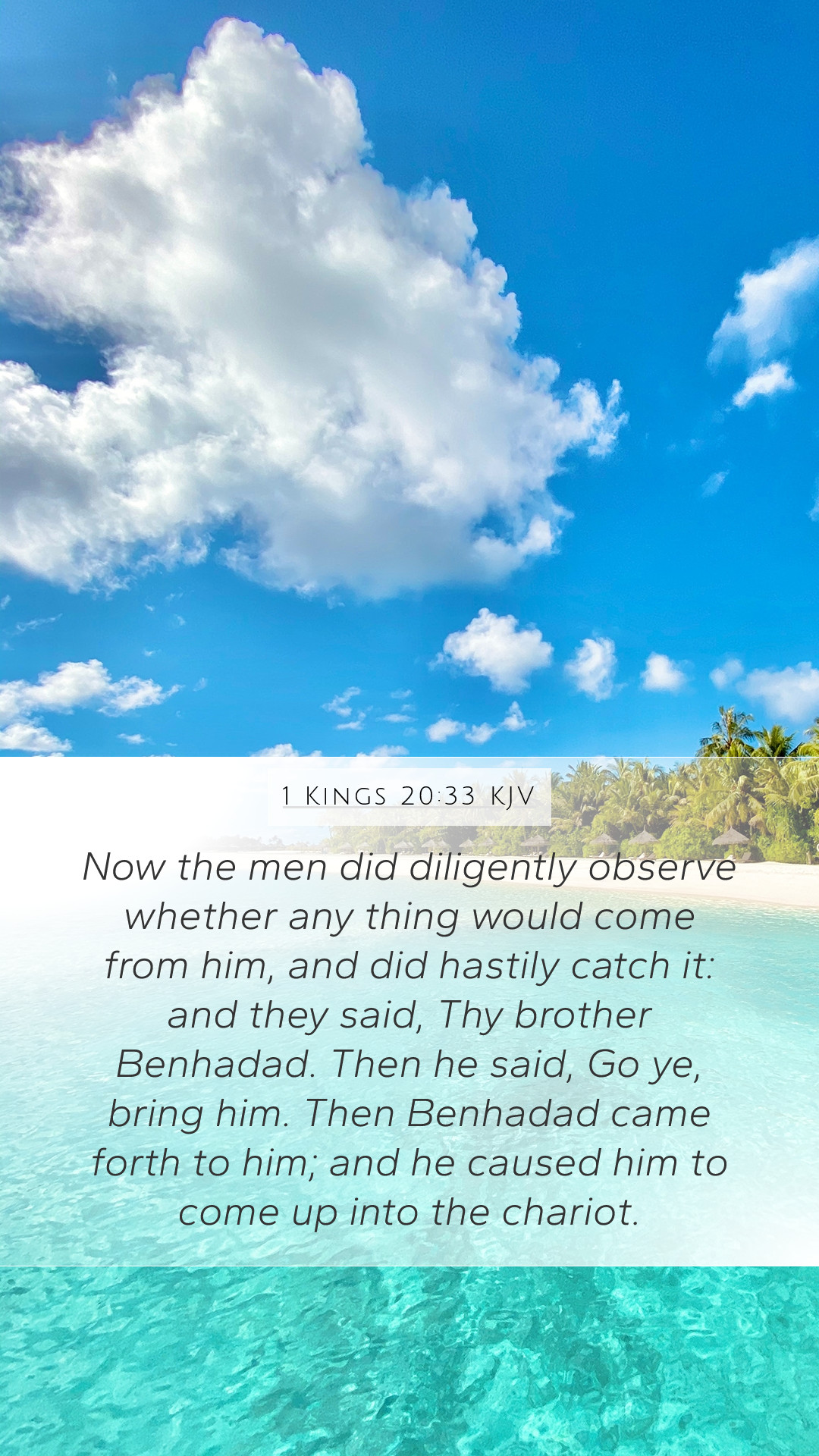Old Testament
Genesis Exodus Leviticus Numbers Deuteronomy Joshua Judges Ruth 1 Samuel 2 Samuel 1 Kings 2 Kings 1 Chronicles 2 Chronicles Ezra Nehemiah Esther Job Psalms Proverbs Ecclesiastes Song of Solomon Isaiah Jeremiah Lamentations Ezekiel Daniel Hosea Joel Amos Obadiah Jonah Micah Nahum Habakkuk Zephaniah Haggai Zechariah MalachiVerse
1 Kings 20:1 1 Kings 20:2 1 Kings 20:3 1 Kings 20:4 1 Kings 20:5 1 Kings 20:6 1 Kings 20:7 1 Kings 20:8 1 Kings 20:9 1 Kings 20:10 1 Kings 20:11 1 Kings 20:12 1 Kings 20:13 1 Kings 20:14 1 Kings 20:15 1 Kings 20:16 1 Kings 20:17 1 Kings 20:18 1 Kings 20:19 1 Kings 20:20 1 Kings 20:21 1 Kings 20:22 1 Kings 20:23 1 Kings 20:24 1 Kings 20:25 1 Kings 20:26 1 Kings 20:27 1 Kings 20:28 1 Kings 20:29 1 Kings 20:30 1 Kings 20:31 1 Kings 20:32 1 Kings 20:33 1 Kings 20:34 1 Kings 20:35 1 Kings 20:36 1 Kings 20:37 1 Kings 20:38 1 Kings 20:39 1 Kings 20:40 1 Kings 20:41 1 Kings 20:42 1 Kings 20:43

